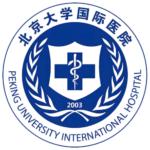China offers some of the most affordable yet high-quality stem cell treatments, making it a preferred location for patients seeking advanced regenerative medicine. Compared to the USA, where treatments can exceed $70,000 per session, China provides world-class care at significantly lower costs. *Price per session

5000$

7000$

11200$

14000$

21000$
Recommend
Procedure Time
Stay Duration
Rehab
N/A
No doctors assigned.

Yanda International Health City, Sipulan Road, Yanjiao Economic and Technology Development Zone, Sanhe City, Langfang, Hebei Province, China

Peking University International Hospital is located at No. 1 Lide Park Road, Life Science Park of Zhongguancun, Changping District, Beijing, China.
No packages assigned.
The cost varies depending on the location. China offers some of the most affordable prices, ranging from $4,200 to $14,000 per session.
Crohn’s patients are not typically eligible for stem cell donation.
While no cure exists, stem cell therapy is a promising breakthrough.
Gene therapy, stem cell injections, and targeted biologic treatments.
CAR-T cell therapy and stem cell transplantation are the most advanced experimental treatments.
Success rates vary but are highest for orthopedic and autoimmune conditions.
Prices in China start at $4,000 per treatment.
Studies suggest a 70-90% success rate in reducing joint pain and improving function.
Stem cell therapy cannot cure arthritis but can significantly reduce symptoms and joint damage.
Challenges include cost, ongoing research, and potential immune rejection.
Prices vary, but in China, costs range from $4,000 to $10,000 per session.
Stem cell-based therapies and beta-cell regeneration are leading treatments under research.
Yes, stem cell therapy for diabetes is being developed to regenerate insulin-producing cells.
Success rates depend on the disease being treated. For arthritis and diabetes, success rates range from 70-90%.
Stem cell therapy can range from $4,000 in China to over $70,000 in the USA per session.
Potential side effects include immune rejection, infection risk, and long-term efficacy concerns.